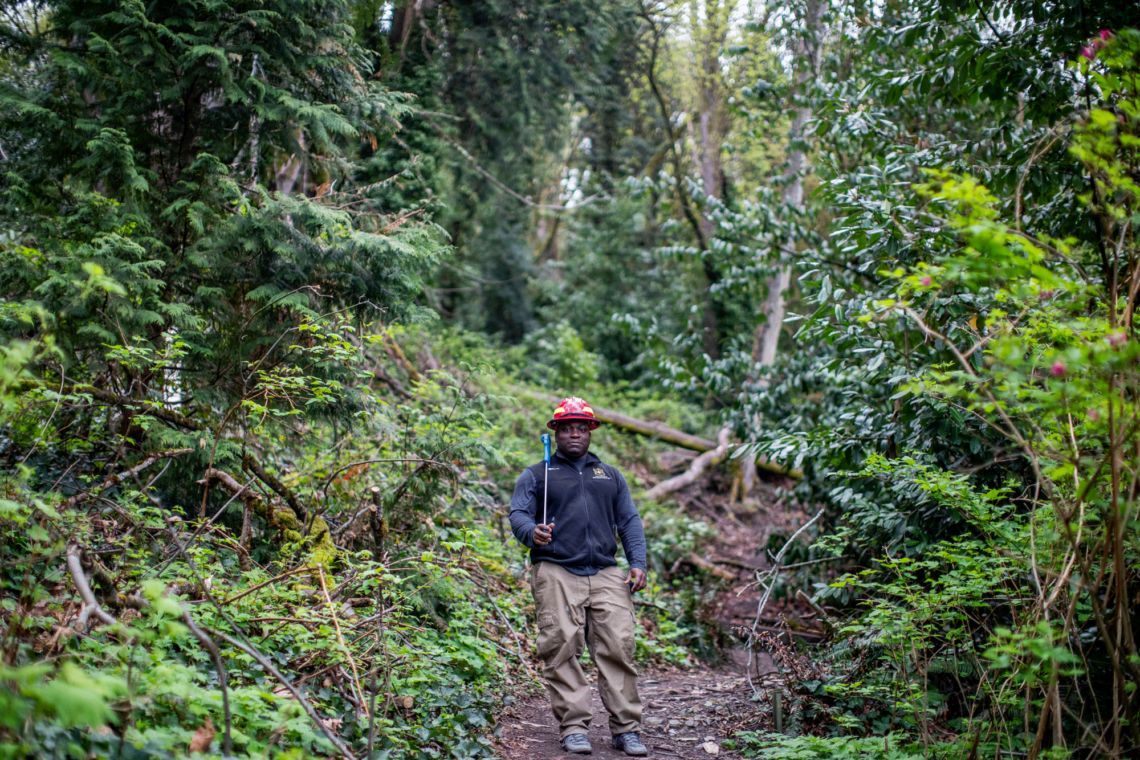
School of Environmental & Forest Services, 2008
“I’m quite sure if it wasn’t for GO-MAP*, I wouldn’t be in my position now,” says Morris Johnson, a research fire ecologist with the U.S. Forest Service and a UW affiliate professor. “I would not have gone to graduate school, would not have gotten the Gates Millennium Scholarship to continue my studies, I would not be in Seattle.”
Johnson hails from the small town of Waterproof, Louisiana. Military service was the expectation for Johnson and most of his classmates. But at the encouragement of his aunt, he enrolled at Southern Louisiana University, in a new field called Urban Forestry.
In Johnson’s third year, he took an internship with the Forest Service which brought him to the Pacific Northwest. After returning to the internship for a second year, Johnson was offered a job as a silviculturist.
Johnson planned to be done with school. “Why would I go to graduate school when I have a paid, full-time job?” he asked. Yet at the encouragement of one of his mentors, he took a tour at the University of Washington in Seattle. When he learned that he could receive funding for graduate school, he decided to apply. He was accepted to the School of Environmental and Forest Sciences and took a leave of absence from work.
GO-MAP provided two quarters of financial support in Johnson’s first year. That funding, he says, was critical. “I wouldn’t have done graduate school without that funding,” he says.
The transition to graduate school was not easy, Johnson says. For one thing, the workload was way more intense. “You’re only taking two classes, but both of those classes are like a full-time job,” Johnson says.
And the University of Washington was very different from Southern, a historically black college.
“At the UW you’re surrounded by a lot more resources, but also a lot of classmates who came from resources you didn’t have,” he says. “You have to work a lot harder to compete in university and in graduate school.”
For Johnson, stopping by the GO-MAP office became part of his routine. “I used to go there all the time,” he says. “At the end of the day, or in between classes, I would go there and chit-chat with Cynthia (Morales) about anything. Having someone to go to is always nice on a campus like this.”
“Cynthia and Julius (Debro, associate dean of the Graduate School), were like my GO-MAP parents,” Johnson says. Johnson attended all of the GO-MAP functions to make connections with other people of color, and also recalls connecting with Emil Pitre, another important figure in the GO-MAP community, at events. On several occasions, Johnson was asked to tell his story at prospective student days.
Johnson recalls how GO-MAP helped make his time in graduate school as seamless as possible when it came to funding and making connections. “They’re like the wizard from the Wizard of Oz,” he says, “back there making sure everything works out right.”
*This story is part of a series celebrating the 50th anniversary of GO-MAP, now known as GSEE. Learn more.